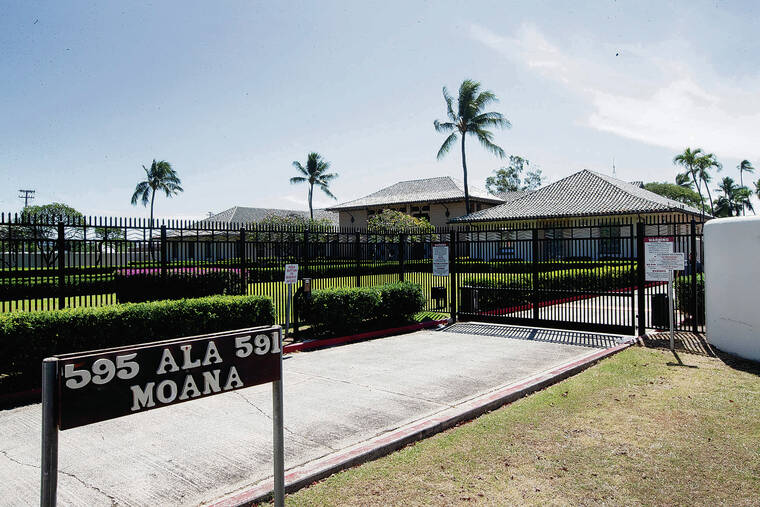The Kaua‘i County Council agenda set for Wednesday, Sept. 21, includes Resolution 2022-28, which proposes to transfer to the Grove Farm Company approximately $7 million in taxpayer-funded property improvements, newly constructed buildings, related infrastructure, and nearly six acres of land — that same land that Grove Farm had previously given to the county.
You can’t make this stuff up. Read the Resolution (https://bit.ly/3Bq2xv8), but also read between the lines.
It seems that the agreement between Grove Farm and the county included a provision that said that if there was not sufficient progress within two years, then the property would revert back to Grove Farm. It further appears that Grove Farm isn’t willing to cut the county any slack on this deadline due to a global pandemic.
Consequently, they have taken us to court, seeking a return of the land (which now includes $7 million in improvements).
If Resolution 2022-28 passes, Grove Farm, which both literally and figuratively already owns most of Lihu‘e, will receive from the county a brand-new 16,000-square-foot residential complex sitting on 5.8 acres of land. This includes enough living space for 16 people to reside there full-time. There’s a separate wing for other uses. There are classrooms that could also be used as offices, and there is a certified kitchen.
According to multiple media reports, the construction of the facilities cost the county at least $7 million, and was paid for via state and county taxpayer funds, plus private donations.
The county will be giving all of this to Grove Farm in return for their promise to utilize the property “solely for use for adult and adolescent health care purposes.”
That’s it. We give you $7 million and the land, and you promise to fulfill those 10 words (apparently in any shape or fashion that you choose).
Does this mean Grove Farm can then turn around and receive a $10-million tax benefit by donating the entire property to a religious institution that promises to run a faith-based drug-treatment program?
Can they sell or lease the property to a profit-focused luxury rehab company that focuses on serving the rich and famous, such as CAPO by the Sea, Passages Malibu and so many others?
Are future occupants of the property even required to include drug-addiction treatment in the services they offer?
Nothing in the resolution nor in the proposed deed restrictions requires Grove Farm to only use the property for an adolescent treatment and health center for local kids, as was envisioned by the community and sold to donors both public and private. There is no requirement to repay the county should Grove Farm sell or lease the property for a profit.
No doubt, everyone involved has good intentions. The county and Grove Farm both might want to fulfill the community’s dream and its needs. But good intentions are not enough.
And if the agreement is not spelled out clearly in writing, it doesn’t exist.
Kauaʻi has a serious drug problem, and there is no on-island residential treatment facility available for our young people who want and need help.
I was newly elected and serving on the Kauaʻi County Council in 2013, and voted in support of various measures that moved this project along. I remember having doubts about its financial viability. I voted for it because I knew in my heart how badly our community needs it, and I knew that no one else was going to step up and do this, so the county must.
As a state senator, I remember taking calls from parents desperately seeking a place for their son or daughter who was literally begging to check in somewhere to detox, clean up and get well. But for these parents, there were no options for residential treatment on Kauaʻi, and statewide there were only waiting lists.
My hope today is that the council will put Resolution 2022-28 and the proposed transfer on hold.
At the very minimum, the language in the document must be rethought and reworked to protect the taxpayer and ensure the vision.
We’ve come too far on this to just throw it all away.
•••
Gary Hooser is the former vice-chair of the Democratic Party of Hawai‘i, and served eight years in the state Senate, where he was majority leader. He also served for eight years on the Kaua‘i County Council, and was the former director of the state Office of Environmental Quality Control. He serves in a volunteer capacity as board president of the Hawai‘i Alliance for Progressive Action and is executive director of the Pono Hawai‘i Initiative.





This is just another example of failed past councils that are out lawyered every time. Steve Case, Mark Zuckerberg have been at work redefining Kauai. Until a Land Baron property tax classification is implemented or voted on Kauai will continue to lose.
So much has been written about the poor, homeless and drug addicted kids on Kauai.
If the voters don’t wake up and elect people, such as Billy De Costa and Felicia Cowden that have shown many times that they are not afraid to stand up to corruption and abuse of the laws there will not be any housing on Kauai for the middle class.